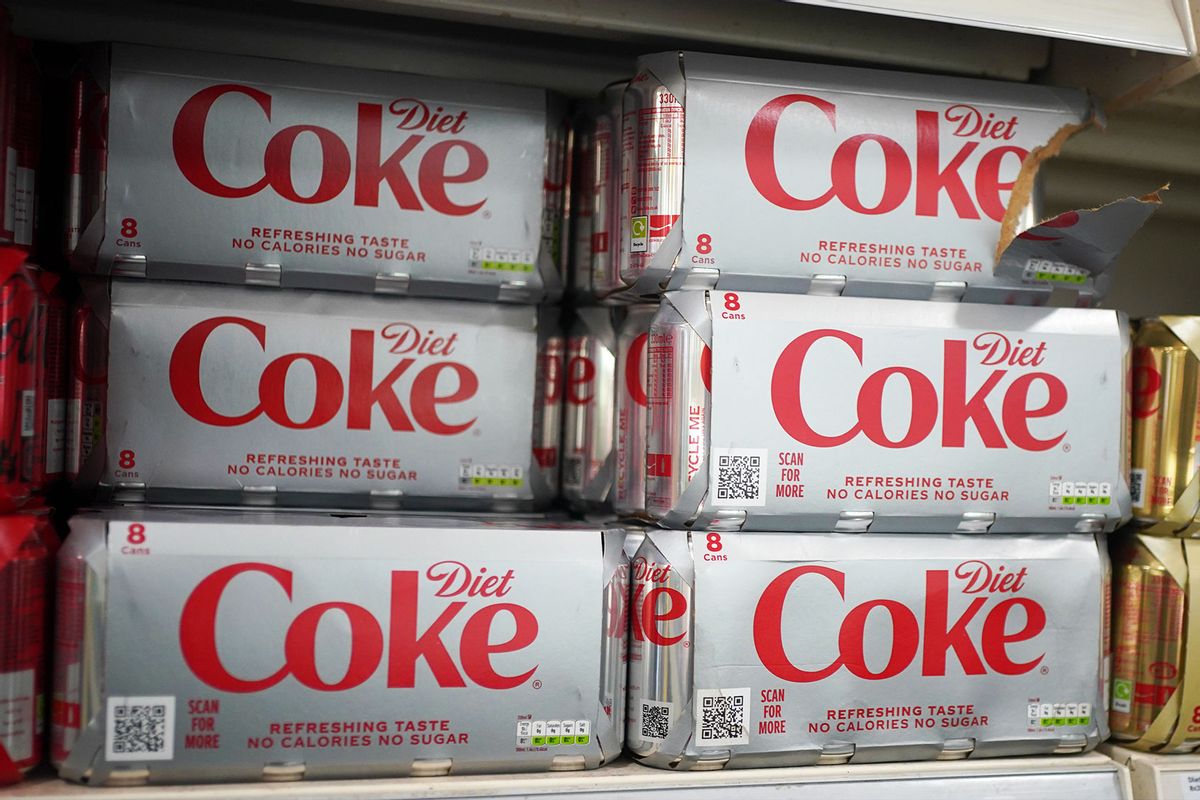What do diet soft drinks, sweetened toothpaste, cough drops, sugary cereals, ice cream and yogurt have in common? They may all be sources of aspartame, an artificial sweetener approximate 200 times more potent than the natural sugar sucrose. Invented in 1965 by James M. Schlatter, aspartame has a long history of use in thousands of food products. But apprehension about its safety has also existed alongside this sugar-mimicking chemical.
"The WHO has classified aspartame is a possible carcinogen, while red meat is classified as a probable carcinogen."
Aspartame is so commonly used that the World Health Organization's (WHO) International Agency for Research on Cancer (IARC), as well as other United Nations bodies, recently assembled 25 independent scientists from 12 different countries to determine the exact level of risk involved in consuming aspartame.
Their conclusion? According to a report released Friday morning, aspartame is classified in Group 2B, one of four possible labels. This indicates that it is "possibly carcinogenic to humans" and that "the acceptable daily intake of 40 mg/kg body weight."
The "Group 2B" label is critical to understanding the precise level of danger attributed to aspartame by the WHO. The IARC Hazard Classification system labels a substance as Group 1 if there is "sufficient" evidence to definitely state that is carcinogenic in humans. If there is sufficient evidence that a substance is carcinogenic in animals, but only limited evidence for that in humans, it is put in Group 2A and known as "probably" carcinogenic in humans. By contrast, if the evidence is downright inadequate that something is carcinogenic for either humans or animals, it is put in Group 4.
A Group 2B classification means that the existing body of scientific research reveals a plausible cancer risk from aspartame — but that more research is needed for a definitive conclusion.
"A classification in Group 2B can be reached when there is limited evidence that the agent could cause cancer in humans, but limited or inadequate evidence for cancer in experimental animals," the report explained. It added that this classification can also be reached "when there is convincing (sufficient) evidence that the agent causes cancer in experimental animals but little or no information (inadequate evidence) about whether it causes cancer in humans; or when there is strong mechanistic evidence, showing that the agent exhibits one or more of the recognized key characteristics of human carcinogens."
Want more health and science stories in your inbox? Subscribe to Salon's weekly newsletter The Vulgar Scientist.
"There needs to be more research on the long-term impacts of consuming aspartame and other nonnutritive sweeteners on health."
There were several reasons why the authors of the report decided aspartame could possibly cause cancer, but not probably cause it. Among other things, there were a limited number of available cancer studies for artificially sweetened beverages in humans (only three) which allowed researchers to assess the potential links between aspartame and a specific type of liver cancer, hepatocellular carcinoma. The results were troubling but inconclusive.
"In all three studies, a positive association was observed between consumption of artificially sweetened beverages and risk of liver cancer, either overall or in important subgroups of the studied populations, but chance, bias or confounding could not be ruled out as an explanation for the positive findings," the scientists determined. They also found a limited amount of evidence for cancer in experimental animals and overall concluded that the possibility of aspartame causing cancer is serious enough that there should be more experiments on the subject.
For anyone worried about aspartame's effect on their health, that should be the main takeaway: we have inadequate data showing the chemical is carcinogenic and we need more investigation.
Aspartame's potential risks don't come from the chemical itself but instead metabolites that are formed when the body breaks it down. These metabolites include phenylalanine, aspartic acid and methanol. For most people, these chemicals are not harmful in the amounts produced from aspartame metabolism, according to some research. Phenylalanine and aspartic acid are both amino acids used by the body for various functions. However, for individuals with a rare genetic disorder called phenylketonuria, phenylalanine can accumulate and cause health issues, so they are sometimes instructed to avoid it. Methanol, a simple alcohol, is also produced during aspartame metabolism, but the amounts are typically small and in line with what one would consume in a normal diet.
Vasanti Malik, an adjunct assistant professor in nutrition at the Harvard T. H. Chan School of Public Health, explained to Salon that aspartame has been a popular replacement for sugar in hundreds of food and beverage products since the 1980s. It is generally considered safe to consume and that any risk is relative meaning that, even if it were toxic, it probably require a huge amount of exposure. For instance, scientists typically argue that a 132 pound (60 kilogram) adult would need to drink between 12 and 36 cans of diet soda to exceed the daily limits of aspartame.
Yet this does not mean that the matter is open and shut. Indeed, there is research that raises concerns, but overall the studies that have examined the issue of aspartame and health have had important limitations, Malik argued. She concluded that more experiments are needed.
"There needs to be more research on the long-term impacts of consuming aspartame and other nonnutritive sweeteners on health over the life course and to understand how (i.e. biological mechanisms) these sweeteners may impact disease risk," Malik wrote to Salon. Indeed, as she pointed out, aspartame-based foods are not the only ones that require more scientific research.
"The WHO has classified aspartame is a possible carcinogen, while red meat is classified as a probable carcinogen," Malik told Salon. "I think this classification [for aspartame] will open doors for more focused research to address key evidence gaps that are needed."



Shares